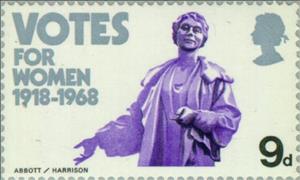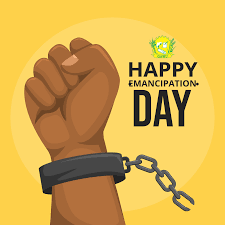Stamp: Votes for Women (United Kingdom of Great Britain & Northern Ireland 1968)
Votes for Women (United Kingdom of Great Britain & Northern Ireland 1968)
29 May (United Kingdom of Great Britain & Northern Ireland ) within release British Anniversaries 1968 goes into circulation Stamp Votes for Women face value 9 British penny
| Stamp Votes for Women in catalogues | |
|---|---|
| Michel: | Mi:GB 486 |
| Yvert et Tellier: | Yt:GB 511 |
| Stanley Gibbons: | Sg:GB 768 |
| AFA number: | AFA:GB 482 |
Stamp is horizontal format.
Two phosphor bands 50th Anniversary of Votes for Women.Also in the issue British Anniversaries 1968:
- Stamp - "TUC" and Trade Unionists face value 4;
- Stamp - Votes for Women face value 9;
- Stamp - English Fighters face value 1;
- Stamp - Captain Cook's Endeavour face value 1'9;
Stamp Votes for Women it reflects the thematic directions:
Commemorations are a type of religious observance in the many Churches of the Anglican Communion, including the Church of England. They are the least significant type of observance, the others being Principal Feasts, Principal Holy Days, Festivals, and Lesser Festivals. Whereas Principal Feasts must be celebrated, it is not obligatory to observe Commemorations. They are always attached to a calendar date, and are not observed if they fall on a Sunday, in Holy Week, or in Easter Week. In Common Worship Commemorations are not provided with collects or indications of liturgical colour. However, they may be celebrated as Lesser Festivals if local pastoral conditions suggest it.
Politics (from Ancient Greek πολιτικά (politiká) 'affairs of the cities') is the set of activities that are associated with making decisions in groups, or other forms of power relations among individuals, such as the distribution of status or resources. The branch of social science that studies politics and government is referred to as political science
An election is a formal group decision-making process by which a population chooses an individual or multiple individuals to hold public office.
Emancipation has many meanings; in political terms, it often means to free a person from a previous restraint or legal disability that violates basic human rights, such as Universal Declaration of Human Rights. Politically it is also used as a guise to procure state power offering the appearance of helping economic and social rights, political rights or equality, often as a pretext for using specifically disenfranchised groups as political proxies in a rhetorical strategy to justify greater state authority over all individuals.



